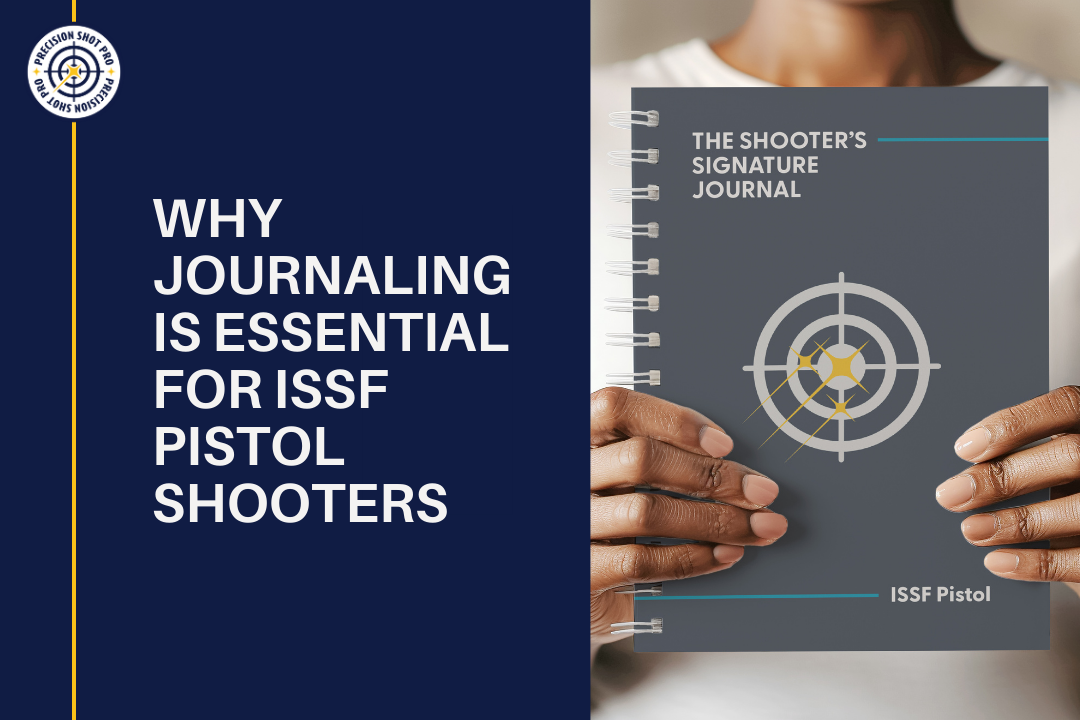Every ISSF pistol shooter, from beginner to elite, knows that consistent practice and disciplined training are essential. But improving faster and more efficiently isn't just about hours on the range - it's also about tracking, reflecting, and analysing your performance. Journaling is a simple yet powerful tool that helps shooters gain self-awareness, sharpen focus, and accelerate improvement. Here's why incorporating journaling into your training routine can transform your shooting.
1. Develop Self-Awareness
Journaling helps you understand your strengths and weaknesses by reflecting on each practice session or competition. Recording your observations - such as front sights, trigger, or breathing - creates a personal performance database. Over time, this self-awareness allows you to make informed adjustments to your technique and strategy, leading to consistent improvement.
2. Enhance Focus and Mental Resilience
ISSF pistol shooting demands mental resilience and clarity under pressure. Journaling gives you a dedicated space to:
-
- Set and review goals
- Visualise succesful outcomes
- Process challenges or distractions
Regularly writing about your training helps improve concentration, cultivate a positive mindset, and reduce performance anxiety during competitions.
3. Track Progress and Patterns
Improvement is rarely linear. By documenting your scores, drills, and competitions, you can track trends and identify patterns in your performance. For example, you may notice certain warm-ups or exercises improve your stability or that performance dips occur at specific times or under particular conditions. Tools like The Shooters Signature Journal provide structured sections to summarise these insights, making it easy to measure progress over weeks and months.
4. Set Clear, Actionable Goals
Journaling allows you to define short-term and long-term objectives for your training. Clearly written goals:
-
- Keep you motivated and accountable
- Provide a roadmap for skill development
- Offer measurable milestones to celebrate
Each achieved goal reinforces confidence and encourages continued improvement.
5. Analyse Performance and Correct Issues
Reviewing journal entries helps you identify recurring problems - such as consistent errors in trigger timing, or mental lapses during competitions. Understanding these patterns enables you to implement targeted solutions, refining both technical skills and mental strategies.
6. Build Resilience and Adaptability
Setbacks are inevitable in competitive shooting. Journaling provides a safe space to debrief after a match, reflect on challenges, process mistakes, celebrate success, and develop strategies to overcome obstacles. Over time, this practice strengthens mental resilience, turning setbacks into actionable lessons rather than sources of frustration.
Conclusion
In ISSF pistol shooting, success isn't just about technical skill - it's also about structure, reflection, and a growth mindset. Journaling, particularly with tools like The Shooter's Signature Journal, helps shooters stay organised, track progress, and sharpen mental focus.
Start journaling today to unlock your full potential, enhance your performance, and transform your training into measurable results.

